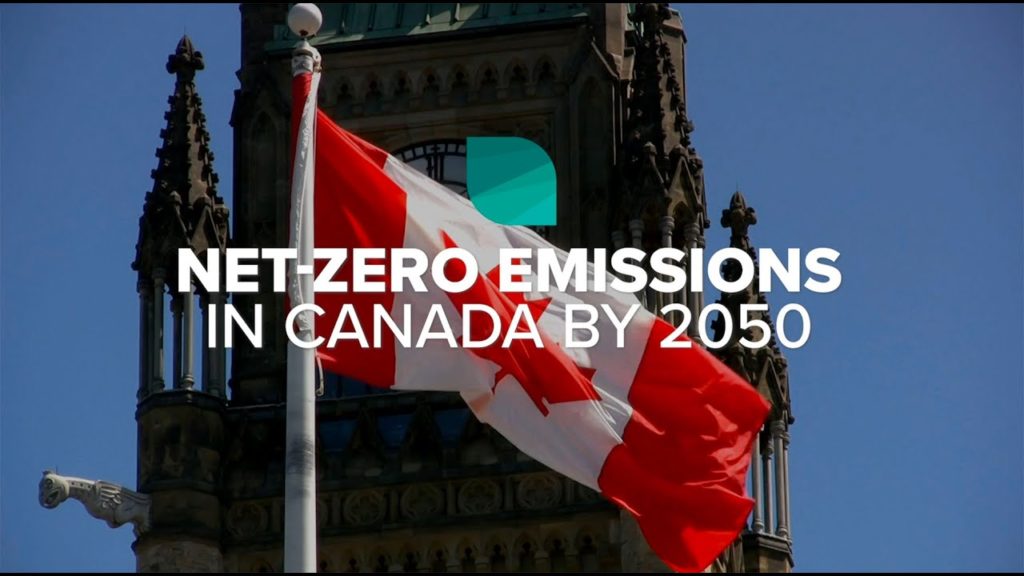Canada’s plan to reach Net-Zero by 2050

Net-Zero Emissions by 2050

The transition to a cleaner, prosperous economy needs to be both an immediate priority and a sustained effort over the years and decades ahead. Canada must keep innovating to meet this long-term goal, strengthening and building on existing measures that fight climate change and transform the economy.
To avert the worst impacts of climate change, the Government of Canada is committed to achieving net-zero emissions by 2050.
This goal will require support and engagement from all parts of society, including provinces and territories, cities, Indigenous Peoples, youth, and businesses.
Canada’s plan to reach Net-Zero
The Canadian Net-Zero Emissions Accountability Act, which became law on June 29, 2021, enshrines in legislation Canada’s commitment to achieve net-zero emissions by 2050. The Act ensures transparency and accountability as the government works to deliver on its targets. The Act requires public participation and independent advice to guide the Government of Canada’s efforts.
Emissions Reduction Plan 2030
Building on the actions in Canada’s strengthened climate plan “A Healthy Environment and a Healthy Economy”, and the Pan-Canadian Framework, Canada’s 2030 Emissions Reduction Plan provides a roadmap to how Canada will meet its enhanced Paris Agreement target to reduce emissions by 40-45% from 2005 levels by 2030.
The Minister of Environment and Climate Change established the country’s 2030 Emissions Reduction Plan in March 2022. The plan reflects input from provinces, territories, Indigenous Peoples, the Net-Zero Advisory Body, and interested Canadians on what is needed to reach Canada’s more ambitious climate target of 40-45% emissions reductions by 2030.
Net-Zero Advisory Body
The Net-Zero Advisory Body (NZAB) was launched in February 2021. With up to 15 members that bring together relevant experience and knowledge, the Advisory Body provides independent advice to the Minister of Environment and Climate Change that supports achieving Canada’s net-zero target.
In November 2021, the Minister of Environment and Climate Change and the Minister of Natural Resources asked the Net-Zero Advisory Body to provide advice on guiding principles to inform the development of quantitative five-year targets for caps on emissions from the oil and gas sector. This advice will support the achievement of the Government’s commitment to capping and cutting emissions from the sector at the pace and scale needed to get to net zero by 2050.
Net-Zero Accelerator Fund
As part of Canada’s plan, the Government of Canada has launched the $8 billion Net-Zero Accelerator Fund to help large emitters reduce their emissions.
For example, Algoma Steel Inc. is receiving up to $420 million from the Fund to retrofit its operations and phase out coal-fired steelmaking processes at its facility in Sault Ste. Marie, Ontario. This will create 500 jobs and reduce emissions by 3 million tonnes per year by 2030.
See related article: RBC Capital Markets highlights recent public sector sustainable financing support, progress with ESG goals
What is Net-Zero?
Achieving net-zero emissions means our economy either emits no greenhouse gas emissions or offsets its emissions, for example, through actions such as tree planting or employing technologies that can capture carbon before it is released into the air. This is essential to keeping the world safe and livable for our kids and grandkids.
Canada has joined over 120 countries in committing to be net-zero emissions by 2050, including all other G7 nations (United Kingdom, United States, Germany, Italy, France, and Japan), A number of provinces and cities have already made net-zero-by-2050 commitments, including Guelph, Vancouver, Hamilton, Toronto, Halifax, Newfoundland and Labrador, and most recently Quebec. Prince Edward Island has also pledged to reach net-zero greenhouse gas emissions by 2040. Nova Scotia and British Columbia have put into place, or plan to put into place, provincial net-zero-by-2050 legislation.
Source: Canada.ca










